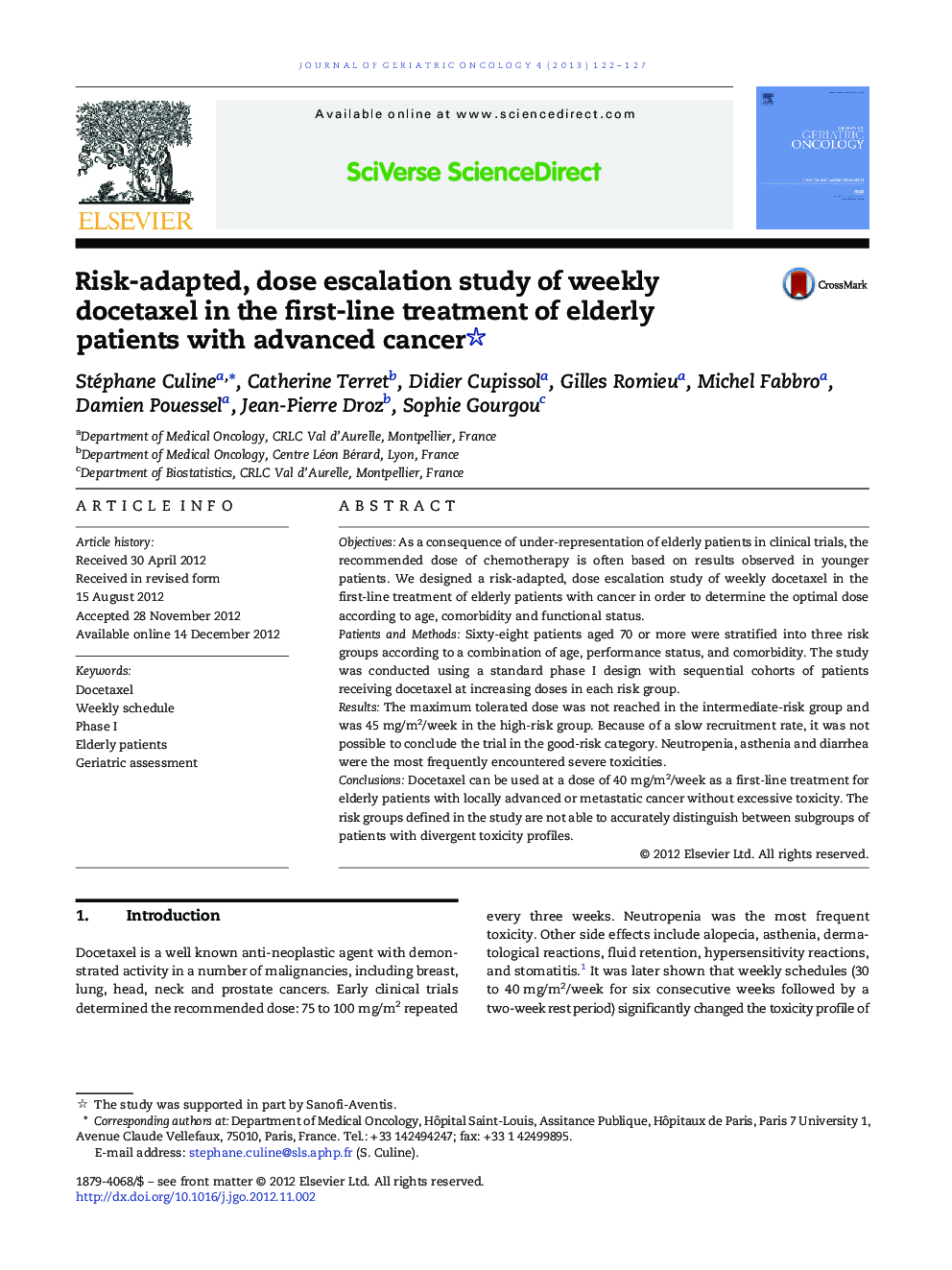| Article ID | Journal | Published Year | Pages | File Type |
|---|---|---|---|---|
| 1912449 | Journal of Geriatric Oncology | 2013 | 6 Pages |
ObjectivesAs a consequence of under-representation of elderly patients in clinical trials, the recommended dose of chemotherapy is often based on results observed in younger patients. We designed a risk-adapted, dose escalation study of weekly docetaxel in the first-line treatment of elderly patients with cancer in order to determine the optimal dose according to age, comorbidity and functional status.Patients and MethodsSixty-eight patients aged 70 or more were stratified into three risk groups according to a combination of age, performance status, and comorbidity. The study was conducted using a standard phase I design with sequential cohorts of patients receiving docetaxel at increasing doses in each risk group.ResultsThe maximum tolerated dose was not reached in the intermediate-risk group and was 45 mg/m2/week in the high-risk group. Because of a slow recruitment rate, it was not possible to conclude the trial in the good-risk category. Neutropenia, asthenia and diarrhea were the most frequently encountered severe toxicities.ConclusionsDocetaxel can be used at a dose of 40 mg/m2/week as a first-line treatment for elderly patients with locally advanced or metastatic cancer without excessive toxicity. The risk groups defined in the study are not able to accurately distinguish between subgroups of patients with divergent toxicity profiles.
